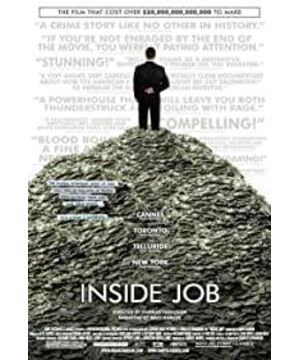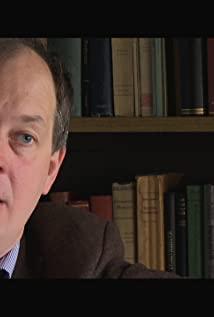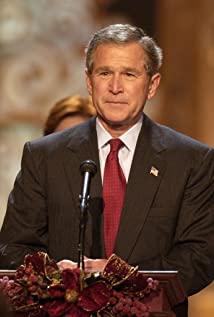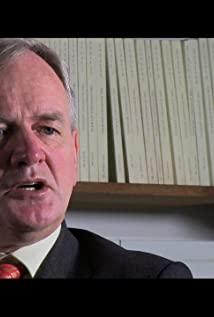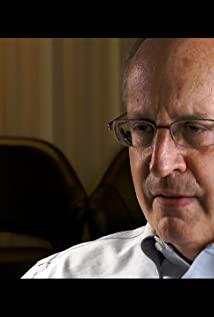The process of watching this documentary was not very pleasant. Especially for people who have no concept of finance and economy, Goldman Sachs, Lehman Brothers, AIG and these big financial institutions are simply magic. Money in their hands turns into rabbits and playing cards at the same time. The audience below was amazed, but they didn't know that they had become leeks that were about to be harvested. The financial crisis in 2008 eventually spread to the whole world, directly leading Iceland to the brink of collapse and Greece’s debt of 300 billion euros. That year, China’s exports experienced negative growth for the first time, export growth turned negative, and a large number of companies closed down. The documentary filmmaker has split the magic of Wall Street into 5 parts.
Part 1: How we got here
After the Great Depression, the United States has been implementing strict financial supervision, and the US economy has thriving in these 40 years. There are internal reasons as well as international environmental factors. Until, in 1981, Reagan's "economic recovery plan" opened a small hole for greedy capital. Beginning in the second year of the Reagan Plan, the U.S. economic growth achieved a high growth rate for 25 consecutive months. Beautiful numbers have blinded the eyes of American investors and lenders, and American politicians are showing off their impressive economic data internationally. But people are always greedy, and capital is always profit-seeking. The original ecological balance has been broken, and the business structure of investment banks has gradually changed. The result is an oligopoly. In 1972, Morgan Stanley had nearly 110 employees. By 2010, Morgan Stanley had nearly 50,000 employees and set up offices around the world with billions of capital. Soros used the analogy of an oil carrier. A regulated financial institution is like a warehouse for oil. One by one, the oil can be evenly distributed in the cabin, so that the hull will not tilt. In a loose management environment, these isolated warehouses are evacuated, and crude oil flows freely in the hull, which leads to increased hull instability. These too-big-to-fail institutions have seen a surge in appetite for high-yielding assets, and a loose policy and regulatory environment that allows issuers to evade legal sanctions has spawned a flood of junk debt. The two hit it off and started one magic show after another.
The first was in the late 1990s, the dotcom bubble. Wall Street analysts and investment bank analysts sell the well-known junk stocks to investors. Seeing that many people here recalled the movie "The Wolf of Wall Street", Jordan Belfort relied on one mouth to describe junk stocks as golden potential stocks. It is said that capitalists are greedy, aren't investors greedy? Who doesn't want the stock they buy to be the next Coca-Cola Company? On the one hand, Wall Street analysts take advantage of the asymmetry of human information, and on the other hand, it is more human greed. The dot-com bubble cost the entire market $5 trillion, and the whole of Wall Street didn't reflect on it because -- it's not anyone's fault, everyone in the industry does it. The financial circle has formed an airtight wall. This wall can use another set of rhetoric to clean up internal money laundering, smuggling, tax evasion, and false accounting, or directly use fines to wash away what should have been borne. crime, and this fine is just the tip of the iceberg for the profit that Yu sets up. It is recommended that people who don't understand the Internet bubble in the 1990s can read Jia Yueting's story, the 2.0 version, and you will understand it all after reading it.
After this, the United States struggled for a while, but in the face of changes in the external environment and the Internet bubble did not cause fatal damage to the United States. The supervision of financial derivatives is still loose, and the leaders of the loose policy include Fed Chairman Greenspan and US Treasury Secretary Summers. It is difficult to know whether these people have been bought by Goldman Sachs and other large investment banks. In short, the power of investment banks has been further expanded. Two financial companies, three securities insurance companies, and three asset scoring agencies in the United States have joined together to form a food chain. This is how the chain works
Traditionally, lenders lend money directly to homebuyers, and lenders will carefully examine the relationship between the two because of their interests. But the new easing policy allows collateral to be turned into financial derivatives as well. In this way, the loan company can sell the mortgage to the investment bank, and the investment bank will package the good and bad loans together into another financial product, collectively referred to as CDO, and then sell it to investors. But smart investors will surely ask: How do you know if this CDO contains golden apples or rotten apples, or a time bomb? At this time, it is the turn of the asset scoring agency to appear, and the scoring agency directly scores that this is a once-in-a-century AAA potential stock. Buy it now. In this food chain, buyers and investors have formed a hidden interest relationship. Lending companies and investment banks just packaged and sold good apples and bad apple bombs, not only making money in the process, but also throwing risks that should have been borne by themselves to investors. Many people will ask, aren't the scoring agencies not subject to legal sanctions for scoring fraud? The nature of financial products is that they are unstable, their prices are opaque, and their values change with the market. Therefore, rating agencies can also use the characteristics of financial products to exonerate themselves, and all this paved the way for the 2008 financial crisis.
Part 2: The Bubble (Bubble Generation)
Stealing candy but not being whipped has made Wall Street elites more and more frantic in their pursuit of profit. First of all, home buyers can easily get loans, and the review of financial products has been relaxed, so that more and more home buyers are willing to take out loans to buy houses even if they are stupid and have no ability to repay the loan. And the Securities Regulatory Commission, which was supposed to be a woodpecker, did not take restrictions or scrutiny measures, allowing junk bonds to roam the market. Then, assists from insurers exacerbated the expansion of the bubble. It took me a lot of thought to understand this CDS, and I will use a simple example to illustrate: You lend Xiao Ming a pound of grain as seeds, because Xiao Ming promises to pay you back 10 pounds after a bumper harvest next year. You think this benefit is very large, but after thinking about it carefully, next year may be a bumper year, or there may be a severe drought next year and Xiaoming's harvest will not be harvested. At this time, Lao Chen came. Lao Chen said that you can buy insurance for this uncertain income. With this insurance, you can directly ask Xiao Ming to give Lao Chen the 10 catties of grain that should be returned to you. And next year, regardless of whether Xiao Ming can still make it, Lao Chen will give you 8 catties of food. And this insurance is CDS (credit default swap), and Lao Chen is the insurance company. What's even worse is that Lao Chen packaged the debt between you and Xiao Ming as a CDO and sold it to others the next day. The whole market is full of such layers of risks, layers of junk bonds. It looks like a very developed business behavior, but in fact the money is still that money. And investment banks lobby the SEC to loosen financial leverage. The result is that the principal of the bank is still so much but it can borrow more money. Once the bank can't exchange the money, everyone wants the consequences. But in the eyes of Wall Street's elite, these are the elephants in the room. Everyone knows what's going on but they don't talk about it, and if someone is going to tell the story then fire that person. The elites of the upper class recruit prostitutes and drugs at night with high incomes, and still drive Lamborghinis to the White House to lobby government officials in suits and leather shoes during the day. And Goldman Sachs president Henry Paulson turned from the CEO of an investment bank directly to the secretary of the U.S. Treasury, tying the interests of Wall Street closely to the White House since then. Only the insiders of the investment bank knew that most of the CDOs recommended to investors were shitty deals, but they justified their actions one by one at the questioning meeting. At this time, you really know that money can make a ghost run. Before the crisis, Goldman Sachs also invited university professors and lawyers to lobby in various groups and investment institutions, and an article was sold for $500,000.
Part 3: The Crisis
There is no such thing as a banquet in the world, but this banquet is not good-looking. The first is that some homebuyers with mortgages cannot repay the loans. The defaulted bad debts are like dominoes, one chain after another is affected, first the lenders, then the investment institutions like Bear Stearns, and then Lehman Brothers, AIG. The worst is that the bottom workers, as well as the elderly, their pensions and hard labor income are used by investment institutions to buy CDOs. Ordinary American people have not escaped this crisis. Big companies are short of funds, and manufacturing can only move away from the United States to lower-cost developing countries, leaving more unemployed workers. And this crisis does not stop in the United States, its influence is still expanding, extending to all corners of the world. Iceland's debt collapsed; Chinese factories shut down and workers were laid off; Greece's debt needs to be shouldered by the entire EU.
Part 4: Accountability
The word Account is very interesting. Account itself is just an account, Accounting means accounting, and Accountability means accountability. Accounting is dereliction of duty in the entire Wall Street magic. It is not that these Harvard elites cannot settle accounts, but that they are blinded by human greed. When the camera was on everyone involved in the magic, the former CEO of Lehman Brothers said: "When the company did well, we did well; when the company did not do well, we did not do well" translated into Chinese : A good company is really good. Other CEO executives, such as Joseph Cassano, continued to work as a financial advisor at AIG for several million dollars a month. Some professors and economists who once preached easing policies were not punished, and even turned into Obama's team. Seeing this, you should also understand that it is not so much that Obama hired them, it is better to say that these Wall Street elites tied the US government to their own ship. Their tactics include political donations, the formation of NGOs, and lobbyists to lobby parliament. High-sounding hearings give many Americans the opportunity to walk into any hearing, but it is difficult to influence the outcome of the hearing. Academia is vying to become a vassal of capital. Don't forget that many of the elites on Wall Street are outstanding graduates of Harvard and Princeton. Glenn Hubbard was on camera and asked non-answers, sitting on pins and needles on his stool, trying to end the interview early. Lawrence Summers, president of Harvard University and a leader in easing policy, has made millions just speaking, and his other income includes writing books and working as a consultant for a number of financial firms. John Campbell, chair of Harvard's economics department, was also vague about the economics of academic and conflict of interest and veiled kickbacks.
Part 5: Where Are We Now
What to do with the chicken feathers in one place after the carnival? No surprises - the weak take it all. The manufacturing industry in the United States has been devastated, and the industrial chain has been transferred overseas. Budgets at public universities are tightening and tuition fees are soaring; middle-class wealth is shrinking, and higher education is becoming increasingly difficult. The wealth of the United States is more and more concentrated in the top, and the gap between the rich and the poor is getting wider and wider. Since 2009, the preferred major for many Chinese students going abroad is accounting and finance. I was very puzzled at the time: Isn't there already a financial crisis? Why are so many people still studying finance? It now appears that the crisis of 2008 should not be called a financial crisis, but a crisis of the poor.
The last sentence from the head of the China Banking Regulatory Commission is very classic: Why is a financial engineer's salary a hundred times higher than that of a real engineer? Because real engineers build bridges, and financial engineers dream, and when dreams turn into nightmares, someone else pays. No wonder Jia Yueting would say: suffocating for dreams, it seems that Jia Jia has already been familiar with the routines of Wall Street. The ending song uses MGMT's "congratulation", which is rather ironic. None of these self-defeating executives, scholars, and politicians have been punished by the law, and some have even made a fortune from this crisis...Congratulation!
View more about Inside Job reviews


